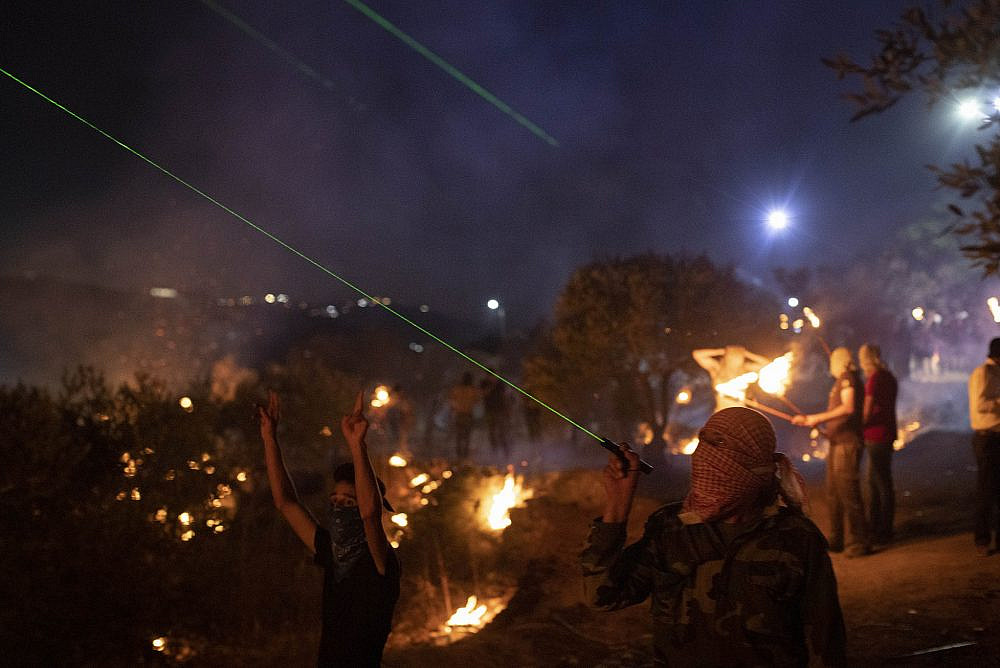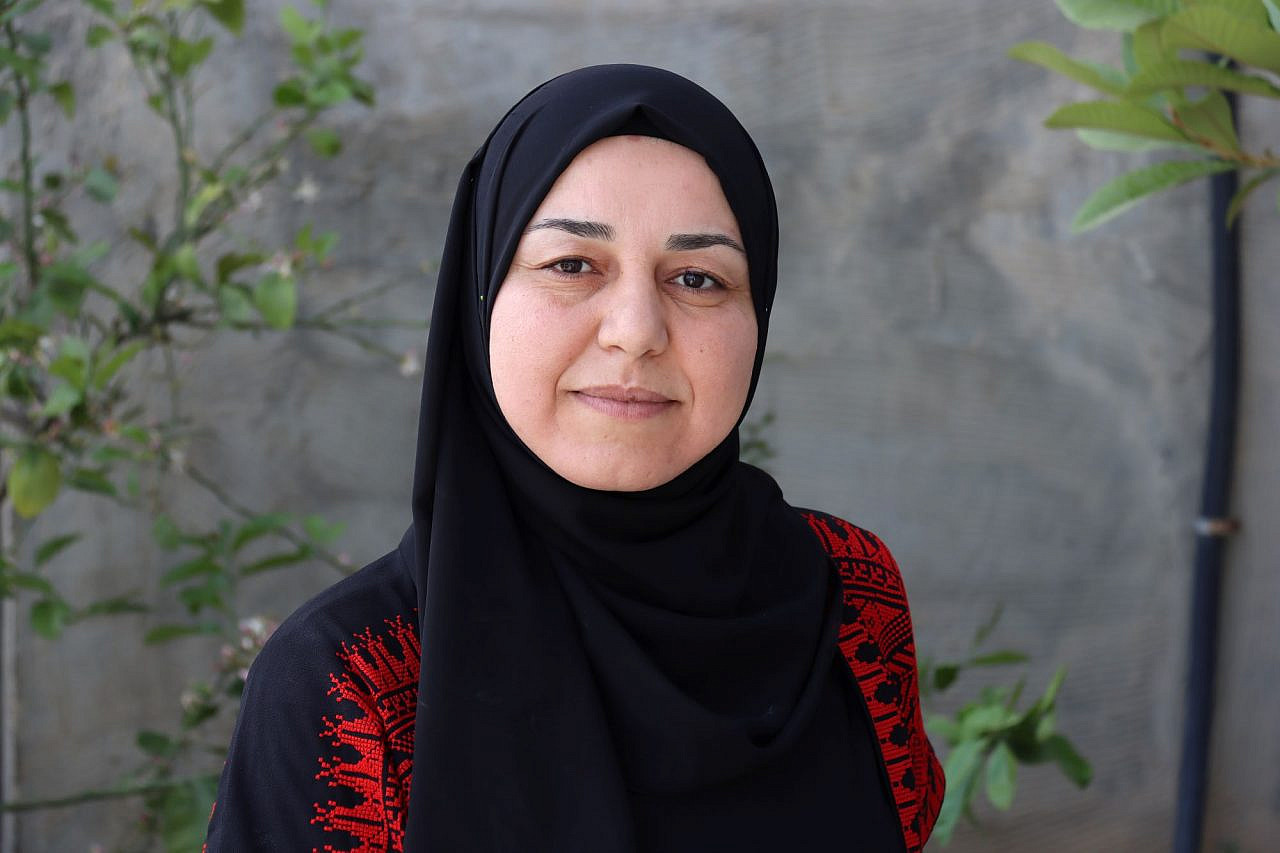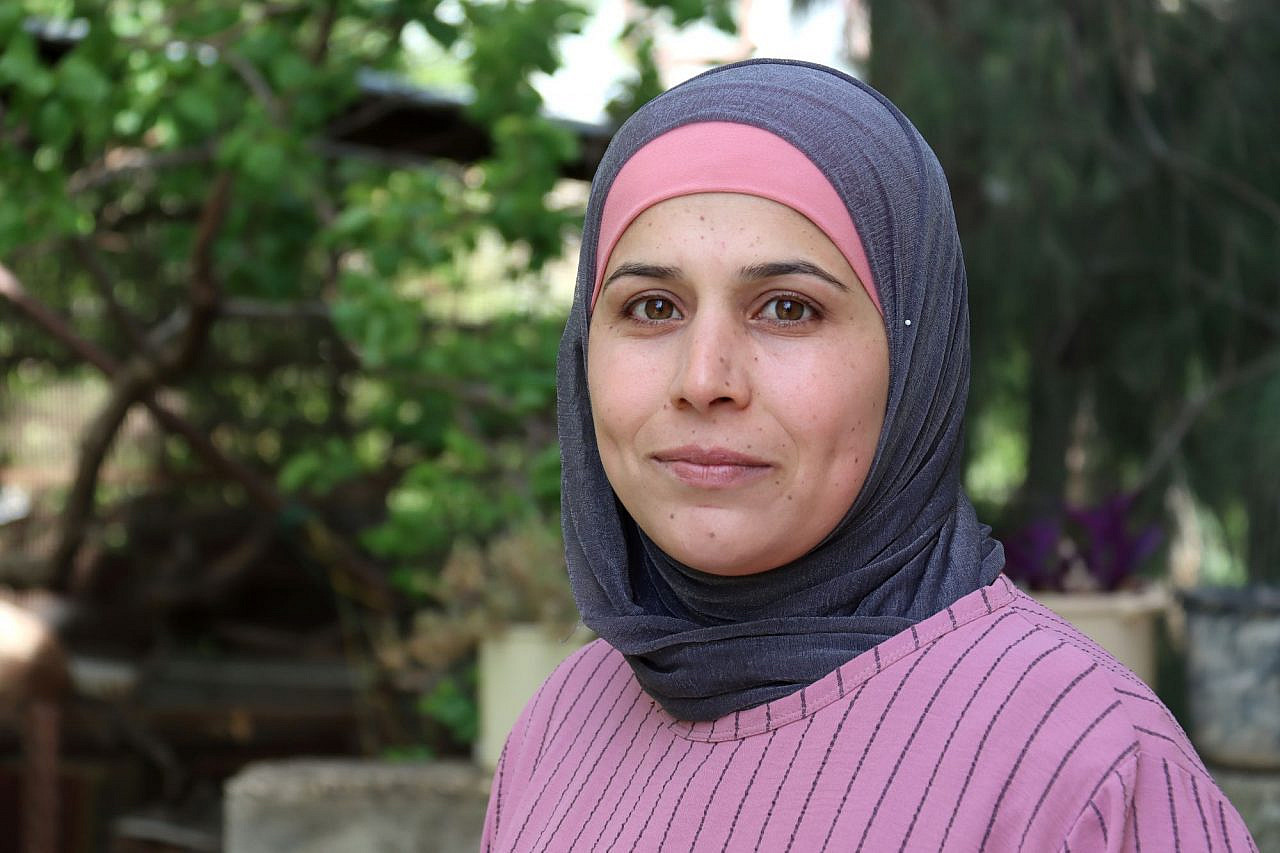Amaal Abu Shamsa is unable to sit still for more than 20 minutes at a time. During our nearly two-hour conversation at her home in Beita, a village in the northern part of the occupied West Bank, Abu Shamsa got up at least half a dozen times, including once for coffee, once to offer me sleeka (a traditional Palestinian dish made with legumes), another to pick up papers related to the local elections, and once to walk over to the veranda to point out Mount Sabih — which, since last May, has become a hub of Palestinian popular resistance following the reconstruction of the Eviatar settler outpost.
“Watching a movie with her is like watching two films at once,” Abu Shamsa’s daughter quips. But her mother’s restlessness is testament to her ceaseless drive — a deeply entrenched personality trait that led Abu Shamsa to launch a women’s collective to support the popular resistance at Mount Sabih, some three kilometers outside of Beita.
When the protests began nearly a year ago, the men of Beita, which is home to about 18,000 residents, decided to maintain a constant presence on the mountain, which also overlooks the Palestinian villages of Yatma and Qabalan. They used social media to stream 24-hour footage from the demonstrations, both to garner more support from across Palestine and to maintain contact with people back in the village — including to request water to drink.
Abu Shamsa was one of the first to respond to these requests, writing on Facebook that she and another friend would traverse the rocky path in her car to deliver water and snacks to the youth on Mount Sabih. Within two weeks, the deliveries had become systematic: twice a day. The women, by then a larger group, gathered in a big ballroom that was usually used by Abu Shamsa’s family as a wedding venue. They prepared food and received donations from other families including bread, meat, yogurt, dates, rice, and sometimes cash.
The meals were delivered at noon and at midnight, Abu Shamsa explains. She was the focal point, connecting and coordinating the supply, the operations, and the distribution among the women and the resistance fighters. Together, they prepared 250 meals per day over a period of 100 days — a time which Abu Shamsa speaks of fondly. When more solidarity groups joined the rallies on Fridays, the women collectively prepared no less than 3,500 meals on those days.
“This is how we, as a women’s group, discovered that our unity makes things happen,” Abu Shamsa tells me while raising the coffee pot in one hand and stirring it with the other, manipulating the fire to stop it from bubbling over. “The women of Beita followed the development of the logistics, meal preparation, and deliveries through social media. The volunteers increased; more women came to support by contributing their supplies and their time,” she says. Some 50 days into the demonstrations on Mount Sabih, the women decided to give their initiative a name: “Aqal Wajib,” an Arabic idiom that means “the least we can do.”
‘We learned from the resistance in Gaza’
The struggle of Beita’s residents against attempts by Israeli settlers to establish an outpost on the village’s land quickly attracted the eyes of the international media — in particular as a result of the Israeli army’s use of live fire to suppress the protests. Ten Palestinians have been killed on Mount Sabih since May 2021, including 16-year-old Muhammad Hamayel and 15-year-old Ahmad Bani Shamsa, with many dozens more being wounded by live ammunition.
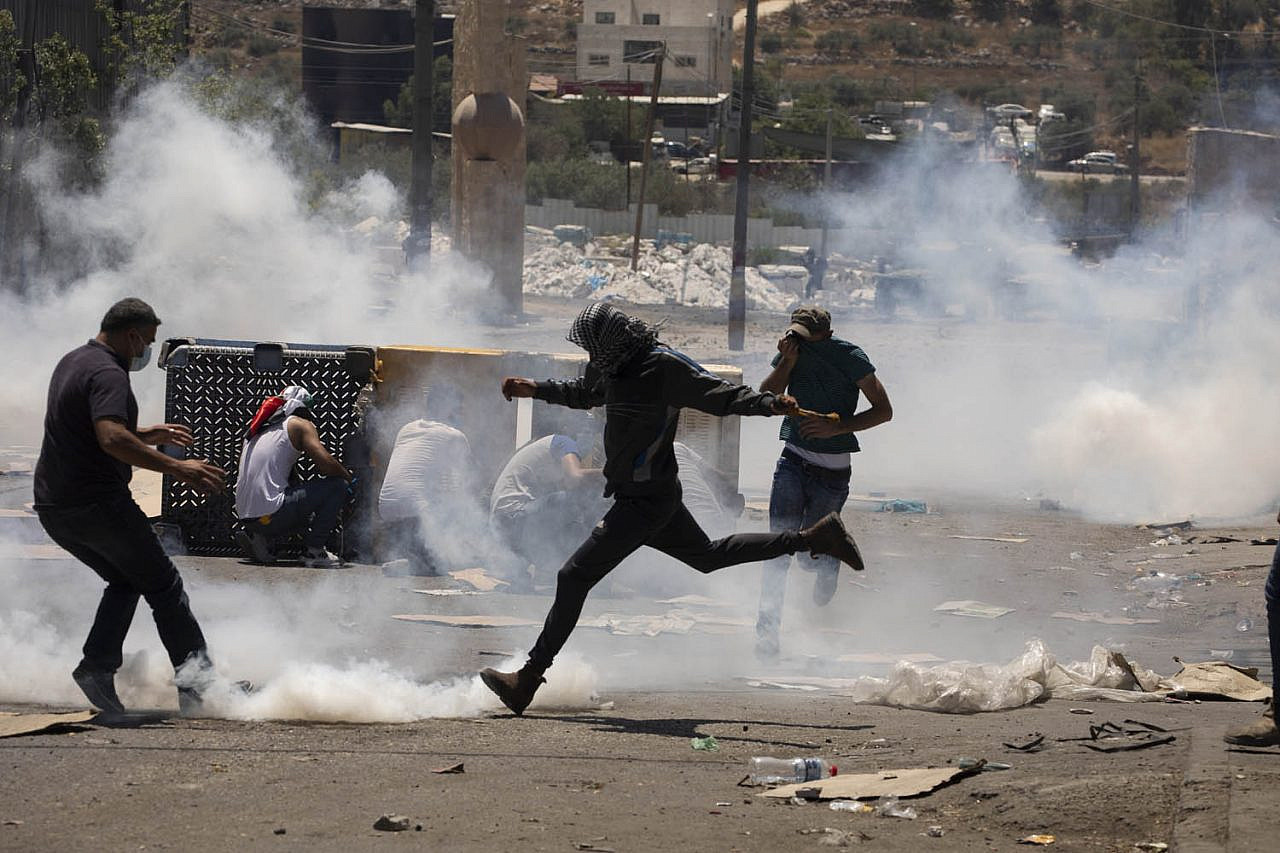
Settlers had tried to establish an outpost at the site on several previous occasions. But this time — after an Israeli was shot dead by Palestinians at the nearby Tapuach Junction — the army didn’t move immediately to evacuate it, triggering the residents’ protests. The Israeli government eventually evacuated the outpost in July 2021 after the settlers agreed to leave without their structures being demolished, pending an examination of the status of the land, and with the possible establishment of a religious Yeshiva there. In the meantime, the Israeli army maintains a constant presence on the land.
“Settlers have no right to live here,” says Shadi (an alias requested out of concern for his safety), a 24-year-old from Beita. For him, the Eviatar outpost represents the planting of a hostile group amid Palestinian villages. “It’s not like they come in peace! They are not welcome.” Resisting the establishment of the outpost, he says, is “our national duty for the protection of future generations.”
Shadi is certain that the resistance of Beita’s residents is the reason the outpost was eventually evacuated. “We were on Mount Sabih on a daily basis,” he says. “We learned from the resistance in Gaza to use lights, laser pointers, fire, and horns as a tactic for night-time confusion.” However, he fears that the agreement is just a ruse to allow the future authorization of the outpost. “It’s still not over,” says Shadi, describing the plan to build a yeshiva there as “Joha’s nail” — an Arabic proverb referring to an unreasonable excuse to stick around. “This is how they calm the settlers, buy time, and eventually legalize [the outpost],” he adds.
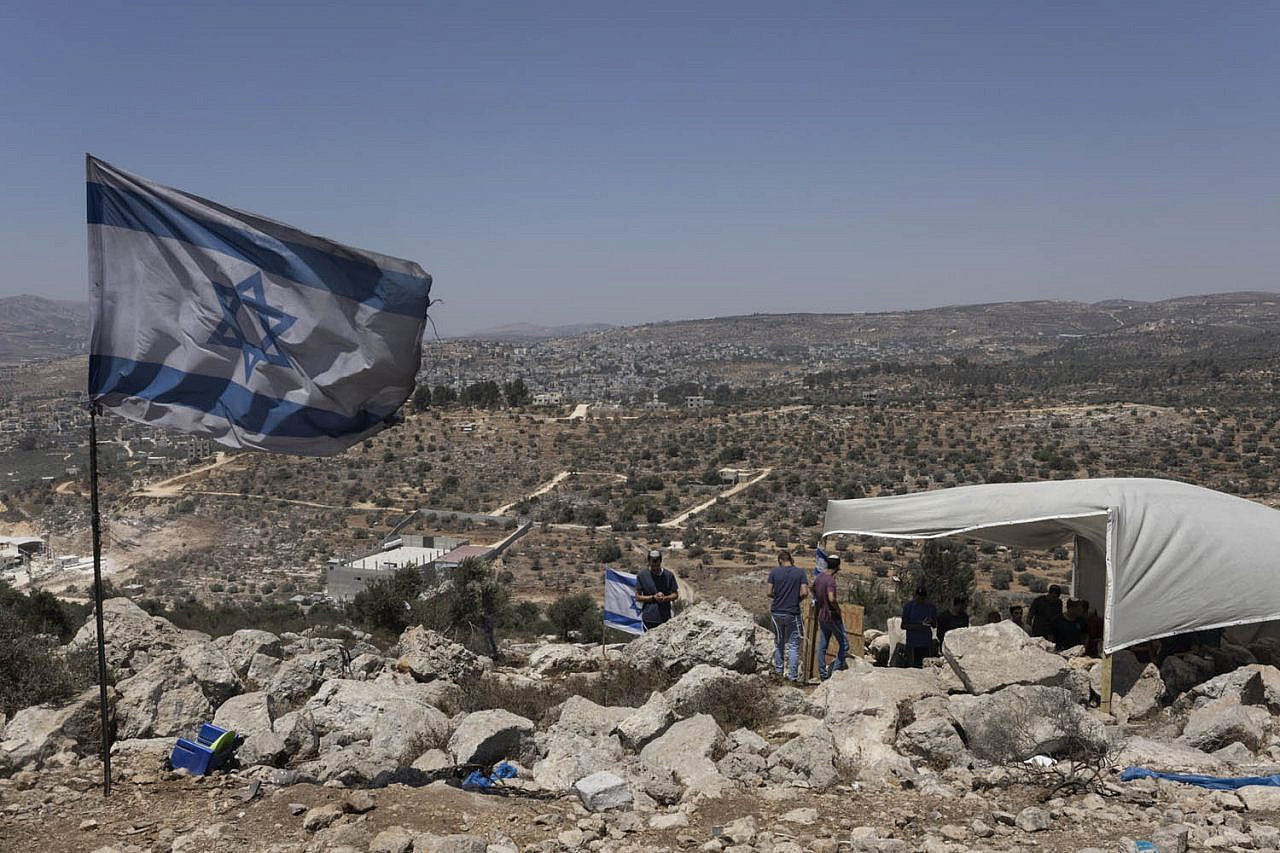
The outpost’s initial evacuation led to a decline in the intensity of the popular resistance on Mount Sabih, alongside other factors including the arrival of a particularly cold winter, the resumption of the school year, and the loss of lives at the hands of the Israeli army. This is not unprecedented; after nearly 20 years of popular resistance against Israel’s settlements and the separation wall in the West Bank since the Second Intifada, many flashpoints reached a point of exhaustion.
A general feeling of fatigue has spread under the brunt of escalating state-backed settler violence, punitive measures by the Israeli army, and a Palestinian Authority that is both rife with corruption and shows no interest in sustaining a national movement. But for the three months of round-the-clock resistance, Abu Shamsa is certain that the work of the women’s collective helped sustain the protests.
“Our initiative made a big contribution toward keeping our youth camping on the mountain,” she says, turning to gaze through the window in the direction of the mountain. “We stopped when the resistance slowed down in the wake of the outpost’s eviction, but we did not want to stop.” For nearly 100 days, says Abu Shamsa, she was living her life to the fullest, doing what she believed in.
Challenging social norms
With the protesters no longer camping out on Mount Sabih, the women’s collective moved on to more social activities in the village: visiting the families of those injured, and showing solidarity to those who lost dear ones through visits and preparing food.
Khitam Dweikat, another member of the collective, felt that the opportunity presented by Beita’s struggle did not reach its full potential. She and Abu Shamsa place a great deal of blame for this on the Fatah party (which runs the Palestinian Authority), which promised to fund the collective’s activities but paid only half of its pledged allocation.
After the intensity of the resistance and the collective’s activities had died down, Fatah offered Abu Shamsa a job in the PA’s security apparatus. Although she felt that this gesture was meant as a way to sideline her, she could not pass up the opportunity for paid work. “My husband, my brothers, and even I, myself, keep asking: until when are you going to remain a volunteer?” she says. “I have no answer, and so I accepted the offer — but I will not stop [volunteering].” Indeed, when she found more time on her hands, Abu Shamsa took an intensive first responder training course and now volunteers as a local paramedic, sometimes for two shifts in a row.
Dweikat, who is a mother of two young boys, is another one of the few women who works outside of the home in Beita, which is considered a conservative village. A lawyer, her work is mostly focused on financial disputes and real estate, but especially represents women.
“Women like us who try to help our hometown, especially at a time of tension and clashes, are the vulnerable ones, because we are the ones who challenged the social norms and sacrificed a lot to go out,” she says. “A word of thanks would have meant the world, but instead, we were met with criticism and rumors,” adding to the reasons for suspending their activities.
“People talked, and they were not always kind,” Dweikat continues, describing her efforts as a headache to those in the village who believed that women should not work outside of their homes or independently from their spouses. “It was seen as worthless, even though it was essential for supporting the fighters.”
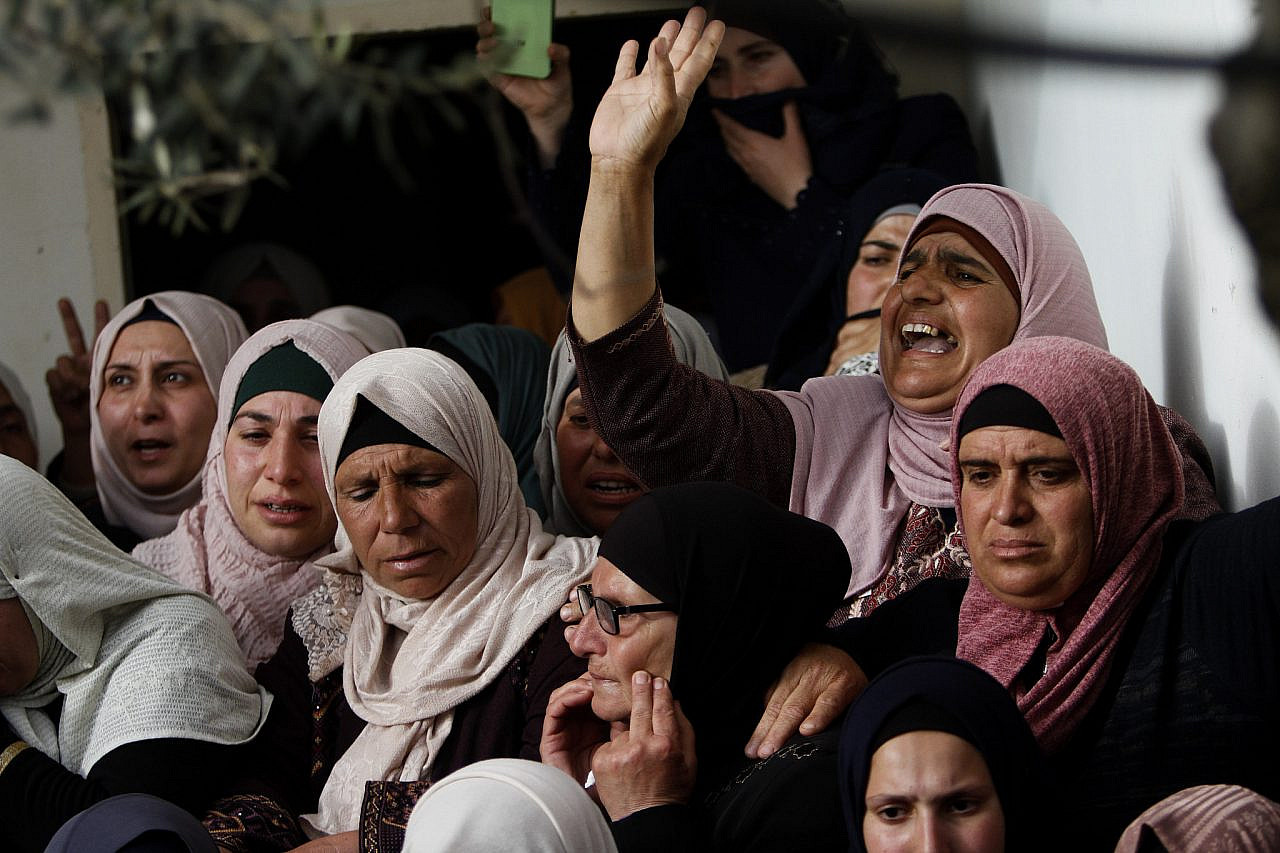
Nevertheless, Dweikat channeled her frustration into motivation, and ran in the recent municipal elections. She chose to run almost incognito, revealing her name but not her face — which some Palestinians view at times as a sign that the woman is participating more to fulfill the gender quota than out of intentional political participation. This was not the case for Dweikat: “I want to serve, I don’t care about being known,” she says.
“My purpose is to help women realize small projects,” Dweikat continues. “I will support women like us — especially those marginalized and those with disabilities.” As for the popular resistance on Mount Sabih: “I want to keep supporting, even if we [just] provide the fighters with dates and fresh yogurt.”

